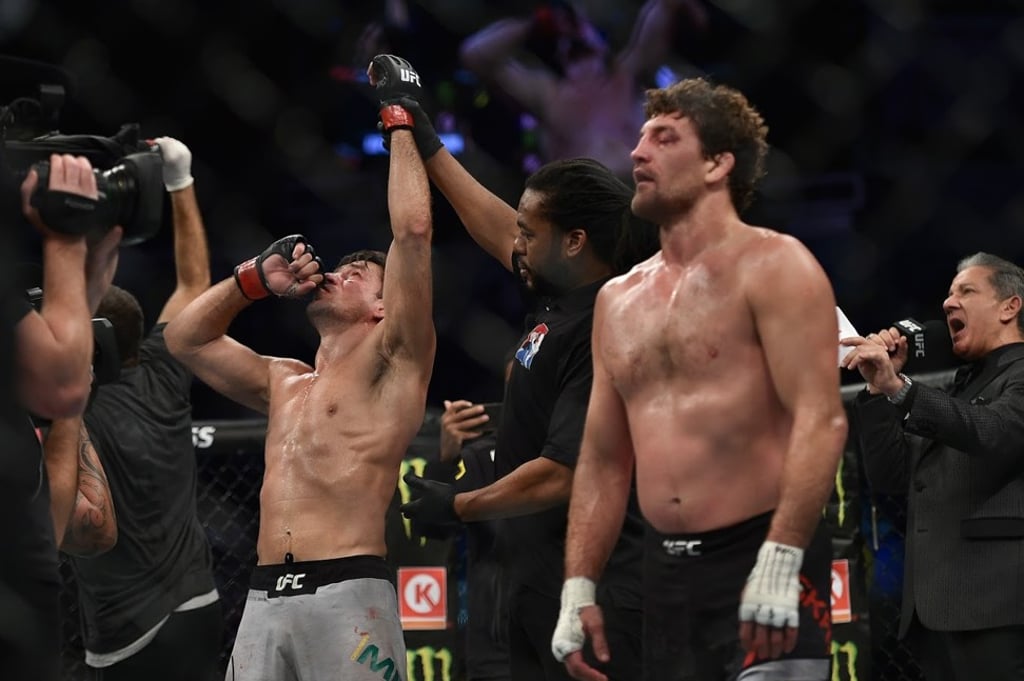UFC: Ben Askren talks ‘challenges’ of MMA fighter retirement; delays hip surgery until August
- ‘Funky’ says ‘I already have a lot going on’ after hanging up his gloves for the second time
- ‘I always encourage athletes to start doing something before they retire, so they’re not twiddling their thumbs and end up fighting again in six months’

After coming out of retirement and swapping the Singapore-based One Championship to finally try his hand in the UFC, Ben Askren’s career in the octagon started as hoped.
With an unblemished 18-0 record coming in, a first-round submission of former welterweight champion Robbie Lawler at UFC 235 last March signalled his intent in the division. But he lost his next two fights in bad fashion: a vicious, record-breaking flying knee knockout by Jorge Masvidal within five seconds in July, and three months later, being choked out by Demian Maia in the third round of a fight in which he appeared to be winning.
A month later, in November, the American announced his retirement, citing a chronic hip injury that would require him to undergo replacement surgery.
But saying goodbye to MMA has not stopped the “Funky” one from remaining just as busy outside the cage, if not more, to the point that he said he put off his hip surgery until next August.

“I already have a lot going on,” Askren told the Post, reading off a laundry list of projects including opening his fourth and fifth wrestling academies along with his brother in the United States, creating a holding company and expanding his MMA podcast that was launched earlier this year.